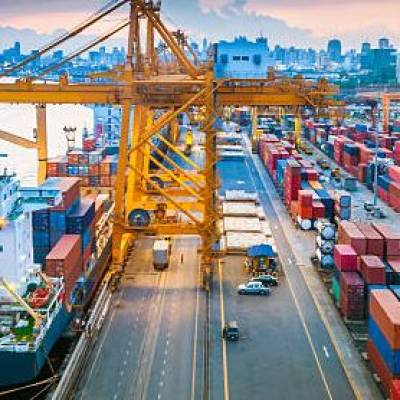

Minister of Commerce and Industry Piyush Goyal told the media that the exports touched about $15 billion for the first half of August, after recording the highest-ever monthly performance in July at $35 billion.
On free trade agreements (FTAs) with nations, he asked the industry to internalise a give and take approach, where they also show a willingness to open the domestic market to foreign companies.
With the opening up of the major economies after the delays of the Covid-19 pandemic, Indian exports grew by about 50% to reach a lifetime high of $35.43 billion in July. The government aims to take merchandise exports to $400 billion for the fiscal year.
In the first 15 days of August, the exports have reached about $15 billion. From April to August 2021, exports are 23% higher compared to the same period last year.
Goyal told the media that the merchandise exports goal for FY23 would have to be kept at more than $400 billion and specified that he requires the overall exports to reach $2 trillion by 2030, contributed equally from the merchandise and services side.
On the FTAs, he said that Australia showed the highest interest in moving forward for an early harvest, while the UK will be the second in forging such an agreement.
Discussions are further on with UAE and another country in the Middle East for such a deal, he said, adding that in the case of the US, the discussions are on the back burner due to the new administration's reluctance to ink such agreements.
The minister believed that signing an FTA with Australia, a developed country with which India has progressed, will make it simpler to sign similar deals with others.
India is also in discussion with the European Union (EU), but getting the bloc on board will take some time as it has 27 countries, he said.
Since the country marches forward on inking such deals, which have the potential to boost bilateral trade and give India deeper access to markets, Goyal urged the industry to be more pragmatic.
Additionally, the minister said that Indian exporters would have to be conscious of quality and fix standards in a way that there is no differentiation between goods manufactured for domestic or international markets.